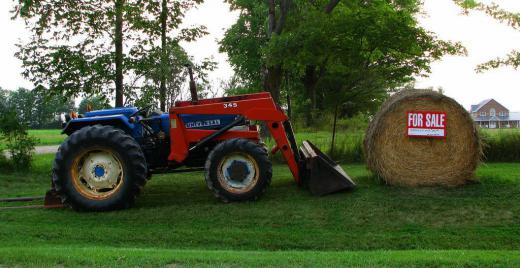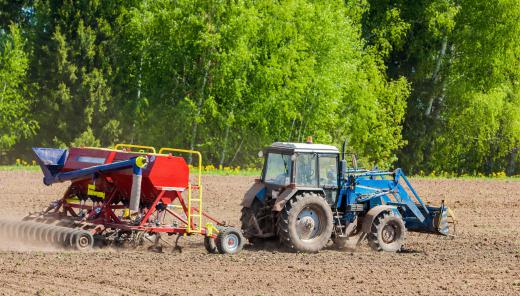There are a variety of things to consider when buying a used tractor. Farm equipment can be very expensive, and buying a used tractor is one way to purchase a piece of equipment that you otherwise wouldn’t be able to afford. The tractor will probably still be pricey, so it is important to do your homework while shopping.
Older model farm tractors often make a better choice than new models. Older tractors have a simpler design and are easier to repair than the tractors that have been manufactured over the past several years. While new technology makes more recent models of tractors easier and more comfortable to use, it also makes it very difficult for you to handle repairs yourself.

If you are reasonably handy, you can probably repair many of the routine problems that develop in farm tractors. If this is the case, purchasing an older tractor makes good economic sense. If, however, you don’t think you will be up for the task, you may want to select a new tractor, or purchase a newer model used tractor from a farm dealer. This will provide you with someone to handle repairs if something should go wrong.

Before purchasing a used tractor, inspect the body carefully. These are working vehicles, so a certain amount of wear and tear is to be expected. Bent or twisted metal, however, can be a warning sign that the vehicle has been in an accident, such as rolling on a hill. You want to avoid tractors that have been in such accidents. If there is visible damage to the frame, the problem can come back to haunt you with uneven wear on the tires and steering issues.

Another thing to carefully examine when looking at a used tractor is the tires. The tires can be replaced, of course, but are expensive. If the tractor tires look like they will need replaced soon, consider using that as a bargaining point when you are discussing price.
Finally, if you are buying a tractor from a private seller, look at the farm where the tractor was kept. Are things well-cared for and tidy? While this can be a generalization, if the farm itself looks well-tended, the used tractor probably received regular maintenance as well. Timely changes of the oil, air filter and various fluids can dramatically reduce the problems that you may have with the tractor in the future.
